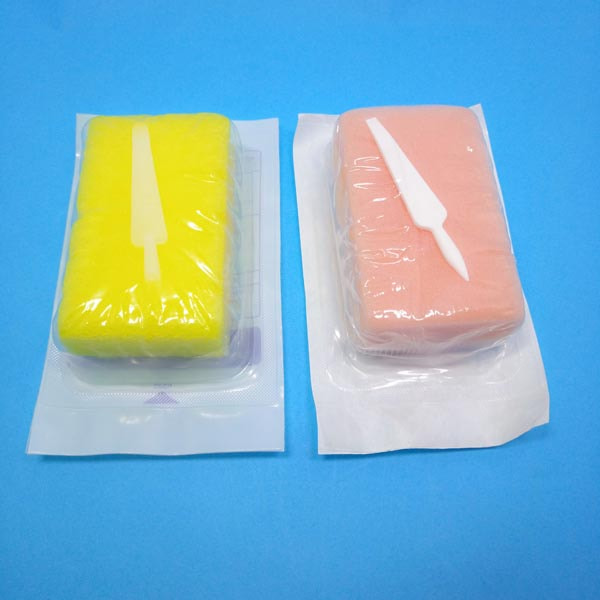Surgical Scrub Brush: A Vital Tool for Infection Control in Healthcare
Introduction
In the realm of healthcare, infection control is of paramount importance. Whether it's in a bustling hospital, a sterile operating room, or a small clinic, preventing the spread of infections is a top priority. One critical element in this fight against infections is the surgical scrub brush. This unassuming tool, often overlooked, plays a vital role in maintaining the highest standards of hygiene in healthcare settings.
The Importance of Surgical Scrubbing
Surgical scrubbing is a rigorous and systematic procedure that healthcare professionals perform before entering the operating room. The primary goal is to eliminate as many microorganisms from the skin as possible to reduce the risk of infection during surgical procedures. Surgical site infections are a significant concern, as they can lead to prolonged hospital stays, increased healthcare costs, and even patient mortality. Surgical scrubbing, which includes the use of a surgical scrub brush, is a crucial step in infection prevention.
Surgical Scrub Brush Components
A surgical scrub brush typically consists of two main components: a brush and an antimicrobial soap. The brush is designed with bristles that effectively remove dirt, debris, and microorganisms from the skin's surface. These bristles are typically made of soft, synthetic materials that are gentle on the skin but effective at cleaning. The antimicrobial soap contains ingredients that kill or inhibit the growth of bacteria, viruses, and fungi. Together, these components work in synergy to ensure thorough cleaning and disinfection.

Proper Surgical Scrubbing Technique
Performing a surgical scrub correctly is essential for its effectiveness. Healthcare professionals are trained in a specific technique to ensure a thorough cleansing of the hands and forearms. The process involves the following steps:
Wetting: The first step is to wet the hands and forearms thoroughly with warm water to open the pores and facilitate soap penetration.
Application of Soap: The antimicrobial soap is applied to the brush, and the healthcare professional lathers up the hands and forearms. Special attention is given to the areas between the fingers and under the nails.
Brushing: Using the surgical scrub brush, the healthcare professional scrubs the hands and forearms vigorously for a specific duration, often for at least two minutes. The brush's bristles aid in the mechanical removal of microorganisms.
Rinsing: After scrubbing, the hands and forearms are rinsed thoroughly to remove soap and contaminants.
Repeat: The entire process is repeated, ensuring all surfaces are adequately cleaned.
Drying: The hands and forearms are dried using a sterile towel, with care taken not to contaminate them during the process.
The Role in Infection Control
The use of surgical scrub brushes is crucial for infection control in healthcare settings. The mechanical action of scrubbing with the brush dislodges dirt, debris, and microorganisms that may be present on the skin. The antimicrobial soap helps kill or inhibit the growth of bacteria and other harmful pathogens. By effectively removing and killing microorganisms, surgical scrubbing reduces the risk of introducing infections into the sterile environment of the operating room.
Conclusion
The surgical scrub brush is a simple yet indispensable tool in the fight against infections in healthcare settings. It plays a vital role in ensuring that healthcare professionals maintain the highest standards of hygiene, particularly before entering the operating room. By following proper surgical scrubbing techniques and using the brush in conjunction with antimicrobial soap, healthcare providers significantly reduce the risk of surgical site infections and contribute to improved patient outcomes. In an era where infection control is of paramount importance, the surgical scrub brush stands as a humble hero, protecting both healthcare professionals and patients from the devastating consequences of healthcare-associated infections.
125
0
0


Comments
All Comments (0)